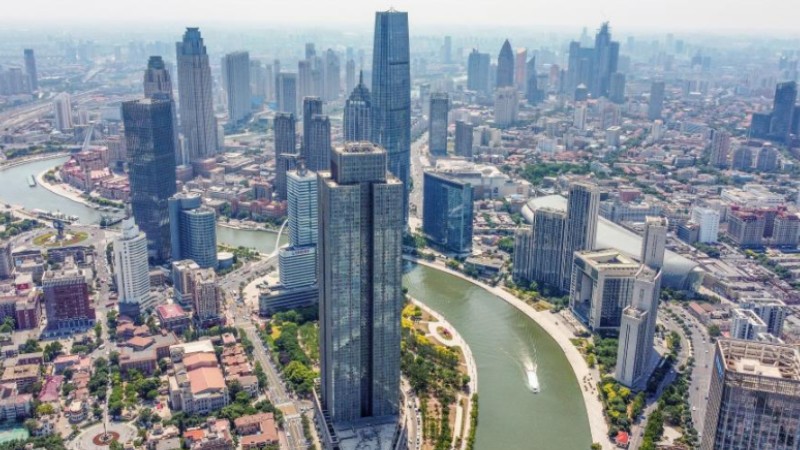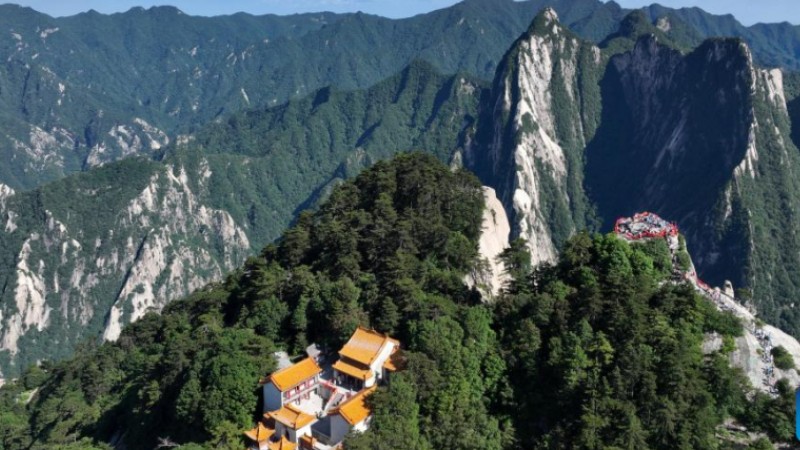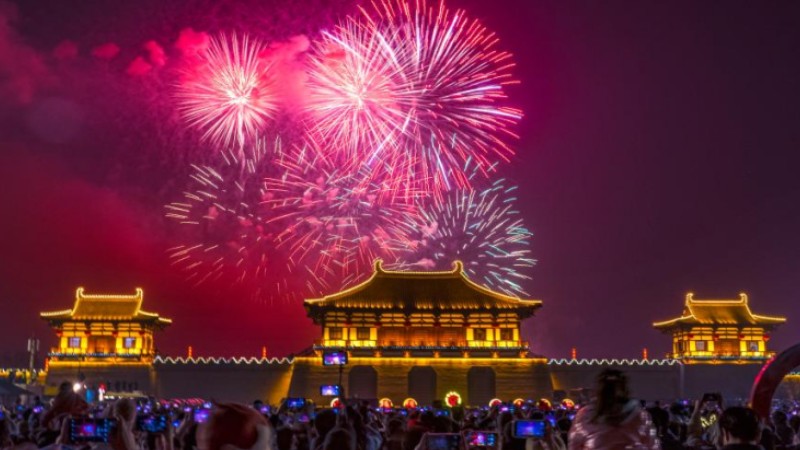Iranian artist paints beauty of rural China
HANGZHOU, June 26 (Xinhua) -- Nestled amid lush bamboo and tea fields sits a rustic two-story cabin, a dream house built by the young Iranian painter Mehraz Karami in a village in eastern China.
Karami, 30, has loved art since childhood. After graduating from a university in Malaysia in 2012, he attended Donghua University and Shanghai University, both in Shanghai, to study design and oil painting. Growing tired of the city, he longed for a peaceful place where he could live and create.
Karami and his wife were attracted by the beauty of Zhuangshang Village in the city of Huzhou, east China's Zhejiang Province, when they visited six years ago. They soon moved to the village and lived in homestays at first, and later rented and renovated a house, where they have lived for more than four years.
"Ever since I was a child, I dreamed of living in a house like this in the woods. In addition to the quiet environment, the transportation and other infrastructure here is also very developed, and life is very convenient," Karami said. "It was the fulfillment of a childhood wish."
"One of the most common phrases I hear when I come here is 'lucid waters and lush mountains are invaluable assets,'" Karami said, and he had been thinking about what that meant. His understanding was that as long as humans protect nature, then their economy, culture and society will become better and better.
Karami said the local government has been improving the rural living environment, and remarkable results have been achieved over the years. The whole village has become clean and tidy, with roads leading to every house and public facilities such as a health center, public toilets and parking lots available to both locals and visitors.
"Twenty years ago, there could not have been so many tourists in this small mountain village, let alone foreigners like me," Karami said.
In June 2003, Zhejiang launched the Green Rural Revival Program, which planned to renovate about 10,000 incorporated villages and transform about 1,000 central villages among them into examples of moderate prosperity in all respects. Over two decades, the program has created thousands of beautiful villages, fundamentally changing the face of the province's countryside.
In recent years, Karami has been creating a series of paintings around the theme of "harmonious coexistence between man and nature." In his paintings, he creatively combines the techniques of Iranian miniatures and Chinese landscape paintings, using smooth brushstrokes to depict mountains, rivers and natural objects, and showing the beautiful ecology and happy people in the village.
"In Huzhou, I saw the most authentic face of nature," Karami said, speaking about his time spent working with a team of Chinese intangible cultural heritage experts to create a series of works around the theme of solar terms.
On the day of "Awakening of Insects," he saw bamboo shoots coming out of the ground, and insects beginning to wake up. "All of these images will appear in my works," he said.
The young painter said that in the process of Chinese-style modernization, the countryside has been developed while the beautiful environment has been protected, which is a great achievement. "In China, more and more places are integrating environmental design concepts into urban and rural planning and construction," he said.
He hopes his paintings will help people understand China today more intuitively, he added.
In Karami's eyes, Iran faces a deteriorating natural environment, as China did in the past. He hopes that his country can learn from China's "two mountains" concept, which is "lucid waters and lush mountains are invaluable assets." He said he also hopes that Iran can coordinate environmental protection and economic development, and make its environment more beautiful.
Karami has also actively engaged with Huzhou authorities in building an international culture and art village in the city, attracting artists from countries along the Belt and Road such as Iran -- and even artists from around the world -- to travel to the village to create and settle down there.
"With such an international art village, more 'Karamis' will come here in the future to promote cultural exchanges and mutual understanding between countries," he said.
Photos
Related Stories
- Chinese painting exhibition held in Vilnius, Lithuania
- Resin painting: Scenes frozen in space and time
- People visit exhibition area of ancient Chinese paintings at 40th Kuala Lumpur Int'l Book Fair
- Exhibition on Chinese paintings held at 40th Kuala Lumpur Int'l Book Fair in Malaysia
- Ancient rock painting identified in north China grassland
Copyright © 2023 People's Daily Online. All Rights Reserved.









